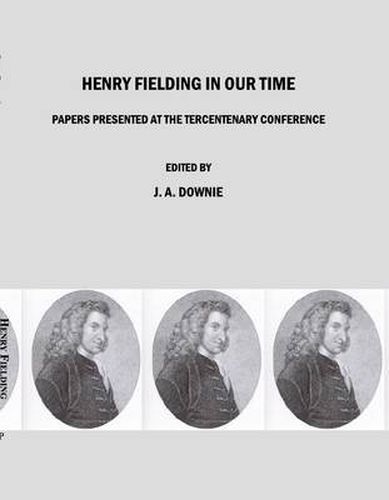Readings Newsletter
Become a Readings Member to make your shopping experience even easier.
Sign in or sign up for free!
You’re not far away from qualifying for FREE standard shipping within Australia
You’ve qualified for FREE standard shipping within Australia
The cart is loading…






Henry Fielding In Our Time publishes many of the papers presented at the international conference held at the University of London 19-21 April 2007 to commemorate the tercentenary of his birth. Written by established scholars, including the acknowledged doyen of Fielding scholars, Martin C. Battestin of the University of Virginia, as well as younger scholars who successfully bring their recent research to bear on neglected areas of Fielding’s life and works, the essays offer a cross-section of current approaches to Fielding and his writings, from his ballad operas, poetry and political journalism , via Joseph Andrews, Tom Jones and Amelia-the novels for which he is still best known-to the social pamphlets written during his years at Bow Street as magistrate for Westminster and Middlesex. The collection should appeal both to undergraduate and postgraduate students as well as academics and general readers interested in the eighteenth-century in general, and Fielding’s contribution to the emergence and development of the novel form in particular.
$9.00 standard shipping within Australia
FREE standard shipping within Australia for orders over $100.00
Express & International shipping calculated at checkout
Henry Fielding In Our Time publishes many of the papers presented at the international conference held at the University of London 19-21 April 2007 to commemorate the tercentenary of his birth. Written by established scholars, including the acknowledged doyen of Fielding scholars, Martin C. Battestin of the University of Virginia, as well as younger scholars who successfully bring their recent research to bear on neglected areas of Fielding’s life and works, the essays offer a cross-section of current approaches to Fielding and his writings, from his ballad operas, poetry and political journalism , via Joseph Andrews, Tom Jones and Amelia-the novels for which he is still best known-to the social pamphlets written during his years at Bow Street as magistrate for Westminster and Middlesex. The collection should appeal both to undergraduate and postgraduate students as well as academics and general readers interested in the eighteenth-century in general, and Fielding’s contribution to the emergence and development of the novel form in particular.